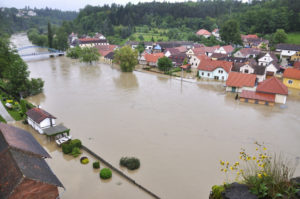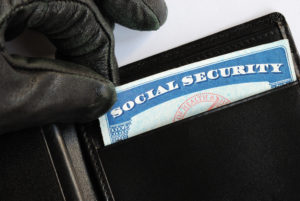
No one ever expects to file an insurance claim, just like when you purchase the extended warranty on the new 60-inch Smart television you just purchased. You hope you don’t need it, but just in case, you think spending the extra couple of dollars might be worth it in the long run.
Homeowners insurance might be a little different, but if mortgage lenders and individuals didn’t think policies were needed then no one would buy them. Just like the extended warranty on your new television, it might be worth it in the long run, saving you a lot of headaches and money.
The fact is, claims happen, and no matter where you live, you might want to put some thought into what your policy covers and what it does not. Our advice is to read the fine print and understand the details of your policy.
Some of the things that are not covered may surprise you; however, the good news is that knowing about these in advance can help you take extra steps to protect your home and your valuable items should the worst occur.
Ground Movement
Just because you don’t live in an area that is stereotypically known to experience frequent earthquakes, doesn’t mean you shouldn’t have coverage. For instance, earlier this year 57 earthquakes took place in Northern Arizona.
Talk with your insurer about the risk and benefits of adding this coverage to your current plan.
Floods

According to Federal Emergency Management Agency (FEMA), floods are the leading disaster in the United States, and people outside high-risk flood areas file more than one-fifth of all National Flood Insurance Program (NFIP) flood insurance claims.
Many standard homeowners insurance policies do not provide coverage for flood damage caused by an “act of nature”. Coverage can also be voided or denied for what are called “simultaneous events”, meaning if you receive hail damage from a storm and your home floods as a result of that hail damage; it is likely you won’t receive coverage for either event.
If you live in a flood zone, you may want to look at purchasing standalone flood coverage or check with your homeowner’s insurance agency to see if “weather-related” flooding is covered.
Infestations
Bedbugs, termites, mice, rats, fleas and any other pests are your responsibility to take care of and pay for any maintenance and any issues or damage that they cause to your home.
It is your responsibility to be on top of a regular maintenance to make sure your home does not fall victim to an infestation.
Mold
According to the Centers for Disease Control and Prevention, mold is a health risk that can bring about symptoms similar to allergies or even breathing difficulties.
Despite the threat, a standard homeowners insurance policy generally either limits coverage for mold damage or outright excludes it.
Talk with your insurer about the risk and benefits of adding this coverage to your current plan.
Nuclear Hazards
FEMA, says nearly three million Americans live within 10 miles of an active nuclear power plant. If an accident at a nearby reactor leaves your home uninhabitable, standard homeowners insurance will not cover the claim.
The good news is you are protected without the purchase of additional coverage. Nuclear power companies are required to provide their own liability insurance to cover damages if you live inside the affected area of a hazard.
A 1957 federal law called the Price-Anderson Act, which compensates people in the United States for any damage or injuries resulting from a commercial nuclear accident.
Claims covered under Price-Anderson include:
Bodily injury
Sickness
Disease resulting in death
Property damage and loss
In addition, individuals evacuated from an affected area can expect reimbursement for reasonable living expenses beyond what you ordinarily pay.
High-Value Personal Items

Personal items such as expensive jewelry, book collections, valuable antiques, fine art, furs, firearms, and the family silver are often excluded from standard homeowners policies.
Standard policies usually only cover up to $1,000, which is often not enough to compensate for either the sentimental or real value of these precious items.
Talk with your insurer to find out if your items are covered at the appropriate value and/or inquire about additional coverage for Valuable Personal Property insurance.
Wear and Tear
Maintaining your home’s roof and exterior, replacing worn-out flooring and tending to slow-leaking pipes are examples of things you should handle yourself over time.
Dangerous or Aggressive Pets
Dog bites account for more than one-third of liability claims, according to the Insurance Information Institute. Always communicate with your insurance carrier to get a clear understanding of what is covered and what is not.
Different policies cover different scenarios, some by breed, some by the type of history of aggression and some by the past training and socialization your pet has gone through.
Business Equipment and Structures
If you operate a business from your home, not all policies will cover business equipment and other valuable assets such as proprietary information and client lists.
And if your business is housed in a separate structure on your property, it might not be part of your primary homeowner’s insurance.
Talk with your insurer about the risk and benefits of adding this coverage to your current plan.
Identity Theft

When you think of loss it’s easy to think of material items that have gone missing, but identity theft is a real risk.
Many insurers are now including it in personal liability coverage, but it is not often part of a homeowners policy. It might be smart to add identity theft protection to your coverage.
While the above instances do not represent every scenario possible they are good things to keep in mind when purchasing homeowners insurance.
What can you do to help yourself?
The average American has been advised to have enough savings to support their households for three months, but in reality, twenty-eight percent said they couldn’t sustain for even a month. Start a rainy day fund.
Professionals in the industry all agree on one thing, having an up-to-date and complete home inventory stored away from their premises. Having a detailed list of personal belongings and their value does two things. First, it ensures that a policyholder doesn’t forget anything that might be covered and can be lost. Second, it helps when negotiating a payout for a claim.
Finally, it’s always a good idea to review the terms of your policy every year. Policyholders assume that because the cost of their premium hasn’t changed, that their coverage hasn’t changed. In reality, insurance companies are constantly making changes to the language of their policies and even a small change could make a significant difference.
Please feel free to contact us for any information on down payment assistance, financing, or even insurance. We are here to help.
The Certo Team
55 N. Arizona Place
Suite #103
Chandler, AZ 85225
602-429-6789
